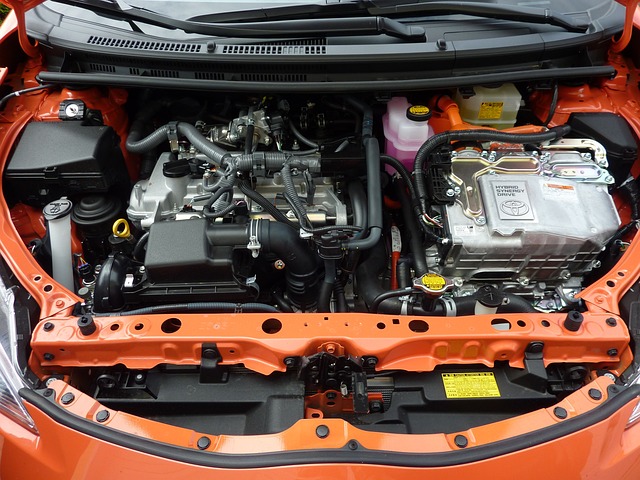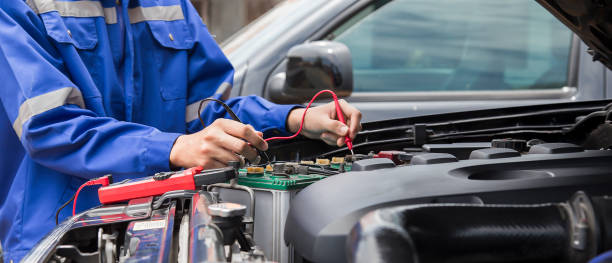When it comes to your car’s automotive electrical system, the battery cables you use are essential. A car battery cable connects your vehicle’s battery to the rest of the electrical system, enabling power to flow to the engine and other key components. But with so many battery cable sizes and gauges to choose from, it can be tricky to know which one is best for your car. In this guide, we’ll dive into the specifics of 7 gauge car battery cables, helping you understand their diameter, benefits, and how to properly install and maintain them.
What is a Car Battery Cable?
A car battery cable is a crucial component of your vehicle’s electrical system. It transmits electrical energy from the car battery to various systems in your vehicle, such as the starter motor and alternator. These cables are designed to handle the electrical load required to power up the engine and keep other electrical systems functioning.
Battery Cable Gauge
The battery cable gauge refers to the thickness of the wire inside the cable. The thicker the wire, the lower the electrical resistance, allowing more current to flow efficiently. On the other hand, thinner wires offer higher resistance, which can result in voltage drops and a less efficient power supply.
Copper Battery Cable vs. Other Materials
Many car battery cables are made from copper because it offers excellent electrical conductivity, allowing for efficient power transfer. Copper battery cable is commonly used in vehicle wiring systems, though some cheaper alternatives, such as aluminum, are available. However, copper is generally preferred due to its superior performance.
Understanding Wire Gauges and Their Importance

When discussing 7 gauge car cable, it’s important to first understand the concept of wire gauges. American Wire Gauge (AWG) is the standard system used to measure wire thickness. The gauge number indicates the size of the wire: the smaller the number, the thicker the wire.
How Gauges Are Measured
In the AWG system, the diameter of a wire is inversely related to its gauge number. For example, a 7 gauge wire is thicker than an 8 gauge wire but thinner than a 6 gauge wire. Each gauge has a different current carrying capacity, which impacts the electrical load the wire can support.
Here is a wire gauge chart for common battery cable gauges:
| Gauge Number | Diameter (inches) | Approximate Current Capacity |
| 6 | 0.162 | 75-85 amps |
| 7 | 0.144 | 60-75 amps |
| 8 | 0.128 | 50-60 amps |
| 10 | 0.102 | 30-40 amps |
The Relationship Between Gauge Number and Wire Thickness
The relationship between gauge number and wire thickness is simple: the smaller the gauge number, the thicker the wire. Thicker wires, like 7 gauge wire, can carry more electrical current without overheating. This makes thicker wires ideal for vehicles with higher power demands, such as those with large engines or heavy-duty electrical accessories.
What is the Diameter of a 7 Gauge Car Battery Cable?

A 7 gauge car cable typically has a diameter of 0.144 inches. This is a moderate thickness, making it ideal for most vehicles that require a balance between power handling and cable flexibility.
Why the Diameter Matters
The cable diameter is crucial for several reasons:
- Electrical Conductivity: Thicker cables have less electrical resistance, allowing for more efficient power transmission.
- Capacity for Electrical Load: A thicker cable can handle a higher electrical load, ensuring your car’s electrical systems perform at their best.
- Flexibility and Durability: Thicker wires are usually more flexible and can handle higher currents without breaking down or causing damage to the electrical system.
Impact on Vehicle Performance
Using the correct gauge and cable diameter helps prevent issues like voltage drops and overheating cables, both of which can cause poor vehicle performance. Choosing the right size for your car ensures that the electrical systems are adequately powered, improving the overall vehicle performance.
How to Measure the Diameter of Car Battery Cables

To measure the diameter of a car battery cable, follow these simple steps:
Tools Required:
- Calipers or a micrometer for precise measurement.
- Ruler or measuring tape for general measurements.
Step-by-Step Guide:
- Disconnect the Battery: Always ensure the battery is disconnected before handling cables.
- Inspect the Cable Insulation: Use your tool to measure the wire insulation and the conductor. Measure the outermost part of the wire insulation to get the full diameter.
- Check for Fraying or Wear: If the wire shows signs of damage, it may need to be replaced.
7 Gauge Car Battery Cable: Ideal Applications
7 gauge wire is ideal for many mid-sized vehicles. It can carry the power required by a variety of engines, making it an excellent choice for everyday cars, small trucks, and some larger vehicles.
Suitable Vehicles and Use Cases
- Standard passenger cars
- Light trucks and SUVs
- Off-road vehicles with moderate electrical needs
Why 7 Gauge is Preferred in Certain Situations
The 7 gauge car cable strikes a balance between current carrying capacity and flexibility, which makes it suitable for most vehicles without taking up too much space or being too stiff to handle easily.
Comparing 7 Gauge to Other Gauges
When comparing 7 gauge to other popular wire gauges, it’s essential to understand the differences in electrical load capacity, diameter, and flexibility.
7 Gauge vs. 6 Gauge
- 6 gauge wire is thicker than 7 gauge and can handle slightly higher electrical loads (up to 85 amps).
- 7 gauge is better for vehicles with moderate electrical needs, while 6 gauge is often used in more power-demanding vehicles.
7 Gauge vs. 8 Gauge
- 8 gauge wire is thinner and better suited for smaller vehicles with lighter electrical needs.
- 7 gauge provides a good balance, handling 60-75 amps without being overly bulky, making it more suitable for larger or slightly more power-demanding vehicles.
Pros and Cons of Using 7 Gauge
Pros:
- Moderate Capacity: Handles 60-75 amps, making it ideal for most vehicles.
- Good Flexibility: Easier to work with than thicker gauges, like 6 gauge.
- Versatile: Works in a variety of vehicles, including standard cars and small trucks.
Cons:
- Not Ideal for High-Power Vehicles: For larger trucks or vehicles with significant power accessories, a thicker wire may be necessary.
- Limited Current Carrying Capacity: For vehicles with higher demands, 7 gauge may not provide the best performance.
Selecting the Right Gauge for Your Vehicle
Choosing the correct battery cable gauge is crucial for optimal vehicle performance. Here are some factors to consider when selecting the right cable diameter for your car:
Factors to Consider:
- Vehicle Type and Size: Larger vehicles require thicker cables to support the higher electrical load.
- Engine Size and Accessories: Vehicles with heavy power accessories or larger engines may need a thicker cable.
- Distance Between Components: Longer cable runs may require a thicker gauge to prevent voltage drops.
Matching Cable Gauge with Vehicle Specifications
Always consult your vehicle’s owner’s manual to ensure you’re selecting the correct gauge number for your car.
Installing 7 Gauge Car Battery Cables

Tools and Materials Needed:
- Crimping tool for cables
- Cable cutters
- Battery terminal connectors
- Heat shrink tubing (for added protection)
Step-by-Step Installation Process:
- Disconnect the Battery: Always start by disconnecting the negative terminal to avoid electrical shorts.
- Measure and Cut the Cable: Use a cable stripping tool to cut the 7 gauge wire to the appropriate length.
- Attach Terminals: Use crimping tools to attach the correct battery terminal connectors to the cable ends.
- Secure the Cable: Attach the cable to the battery, ensuring the connections are tight and secure.
- Seal with Heat Shrink Tubing: For added protection, seal the connection points with heat shrink tubing to prevent corrosion.
Common Mistakes to Avoid:
- Loose Battery Connections: Always ensure the connections are tight to prevent voltage drops.
- Incorrect Cable Length: Measure your cable before cutting to avoid extra lengths that might cause issues.
- Using Incompatible Terminals: Ensure the terminals fit the cable gauge and the battery’s terminals.
Maintaining Your Car Battery Cables
To ensure your car battery cables remain in top condition, regular inspection and maintenance are essential.
Regular Inspection Tips:
- Look for corrosion on the battery terminals.
- Check for frayed wires or worn-out insulation.
- Test for voltage drops using a multimeter.
Signs of Wear and When to Replace:
- Corrosion on battery cables can impair conductivity.
- Frayed wires or worn insulation may result in short circuits or overheating cables.
Conclusion
The right 7 gauge car battery cable can make all the difference in your vehicle’s electrical system. Whether you’re replacing old cables or upgrading your wiring, understanding the current carrying capacity, diameter, and proper installation of your battery cables is essential for maintaining optimal vehicle power. By choosing the appropriate cable size and ensuring proper maintenance, you’ll keep your car running smoothly and efficiently.
FAQs:
- What size battery cable is best for my car? It depends on your vehicle’s electrical load, but 7 gauge wire is a great choice for most cars and trucks.
- Can I use 7 gauge wire for a larger vehicle? If your vehicle has a high electrical load, you may need a thicker wire, such as 6 gauge.
- How do I prevent corrosion on battery cables? Regular inspection, cleaning, and using protective heat shrink tubing can help prevent corrosion.
- Can I install battery cables myself? Yes, with the right tools and precautions, installing battery cables is a DIY project.
- How often should I replace my battery cables? Replace your battery cables when they show signs of wear, corrosion, or overheating.
Also Read More Article : 6 AWG Extreme Copper Battery Cable
